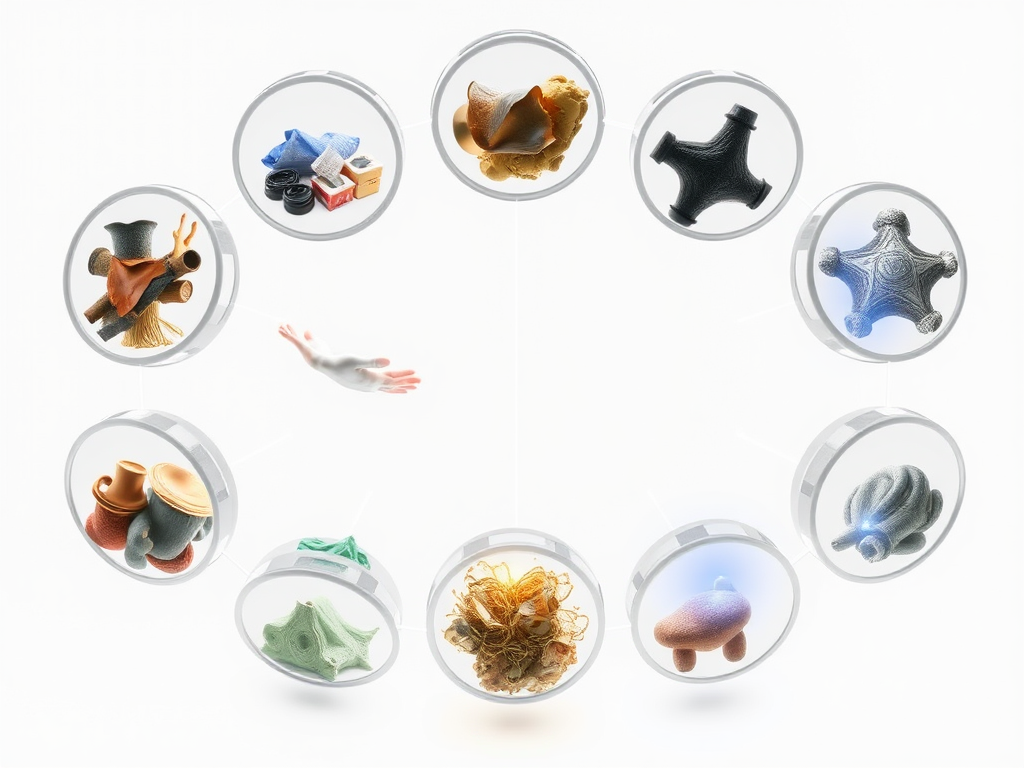
Opening
Looking back now, I'm really grateful that I made the determination to change. Back then, my salary would flow away like water as soon as I got paid, leaving me anxious at the end of each month, tossing and turning at night, counting the loose change in my wallet and figuring out how to make it to the next payday. Life felt like a bottomless pit that could never be filled. But now, I've not only achieved $4,000 in monthly passive income but also found a financial management path that suits me. It seems incredible thinking about it, but it all really happened.
Facing Reality
One weekend around this time last year, I was lying in bed scrolling through my phone when I suddenly had the urge to check how much I'd spent that month. Opening my Alipay and WeChat Pay statements, I was completely shocked. $600 on takeout, averaging $20 per day - it didn't seem too much? But looking closely, what's with the $320 on bubble tea? I couldn't believe I had drunk over 40 cups of bubble tea in a month. Not to mention snacks, which added up to $480 in total.
Looking at these numbers, I started to recall how this money was spent. Waking up late with no time for breakfast, grabbing bread and bubble tea, too lazy to queue at the cafeteria for lunch so ordering takeout, buying snacks at the convenience store when hungry during overtime, and big meals during weekend gatherings with friends. These seemingly insignificant small expenses had unknowingly devoured most of my salary.
At that moment I suddenly realized, if I continued this uncontrolled spending, forget about saving and investing - I might not even be able to maintain basic quality of life. What worried me most was that if I encountered any emergencies requiring money, I had no reserves at all. This feeling of anxiety was really terrible.

Insights from Expense Tracking
After facing reality, I decided to start tracking expenses seriously. Not just casual recording, but noting down every expenditure clearly and categorizing them in detail. I compared several expense tracking apps and finally chose one that was simple to use with detailed categorization.
It felt quite unnatural when I first started tracking expenses - sometimes I'd forget to record a purchase and later couldn't remember where the money went. To build the habit, I set a phone reminder for 10 PM every night to check the day's expenses. Gradually, expense tracking became part of my life.
After three months of persistence, I finally had a relatively complete set of spending data. Careful analysis revealed my expenses were mainly concentrated in several categories: daily food expenses accounted for 40% of total spending, including takeout, restaurant meals, snacks and drinks; shopping took 30%, mainly clothes, cosmetics and some electronics; entertainment and social activities 20%, like movies, karaoke, and gatherings with friends; other expenses 10%, including transportation and phone bills.
These data were eye-opening. The takeout that I thought didn't cost much actually took up a large portion of my salary each month. And those so-called "necessary" purchases, looking back, were often impulse buys. What surprised me most was how high my entertainment and social spending was - going out almost every weekend and spending quite a bit each time.

Precise Optimization
With detailed spending data as a foundation, I began targeted cost-saving measures. I started with daily food expenses, which took the largest share. I found I was ordering takeout 4-5 times per week, averaging $35 each time, spending over $700 monthly. If I switched to bringing my own lunch, buying simple ingredients to cook at home, costs could be reduced to under $15 per meal.
To achieve this goal, I started learning basic cooking skills. It was quite chaotic at first, but I gradually found my rhythm. I would plan menus in advance on weekends and buy a week's worth of ingredients at once. Spending an extra 20 minutes in the morning preparing lunch, and defrosting ingredients for the next day when returning home at night. This not only saved money but also led to healthier eating.
For shopping, I made a rule: whenever I wanted to buy something, I'd first put it in my cart and wait a week. If I still felt I really needed it after a week, then I'd consider buying it. I found that many items lost their appeal once the impulse to buy passed. For necessities, I would compare prices across stores and buy when discounts were biggest.
Entertainment and social expenses were actually the easiest to optimize. I discussed with friends about changing how we hang out, like having picnics in parks or cooking and chatting at home - not only saving money but actually improving our relationships. For movies, we'd try to go on member days or early shows when tickets were cheaper.
Increasing Income While Reducing Expenses
Just saving wasn't enough - the key was making the saved money truly generate value. After careful consideration, I decided to divide my monthly savings into three parts: 30% as emergency funds kept in a current account for unexpected needs; 40% for financial investments, mainly in stable funds and quality stocks; the remaining 30% for self-improvement, including learning courses and skills training.
Specifically, I fixed $2,000 monthly for investment in stable funds. When choosing funds, I paid special attention to their historical performance, volatility, and fund manager capability. Another $1,000 went into carefully researched quality stocks, mainly blue-chip stocks with good fundamentals and stable dividend yields.
The remaining money I invested in myself. I started with a Python programming course, finding this skill useful for work and potential freelance projects. Later I successively learned data analysis and financial knowledge, which laid foundations for my later career development and investment management.

Investment Insights
Through this period of practice, I gained a deeper understanding of financial management. Most important is establishing correct investment concepts - don't be tempted by high-yield investment projects. My investment principle is: prioritize stable returns, better to accept lower returns than risk capital safety.
When selecting funds, I focus on several indicators: annual returns between 8-15% over the past three years - neither too low nor unrealistically high; maximum drawdown not exceeding 30% for risk control; fund size above 1 billion to ensure liquidity and stability.
Beyond these numbers, I study the fund's investment style and portfolio structure. For instance, if a fund's top ten holdings are all fundamentally solid large companies, that fund's risk is relatively lower. I also regularly check fund managers' investment reports to understand their market judgment and investment strategies.

Compound Effect
After a year of consistent investing, I truly felt the power of compound interest. I initially invested $3,000 monthly in a fund with 10% annual returns, and after a year, the total principal and interest reached $37,235. If this money had simply sat in a bank, it might not even have kept pace with inflation.
This result strengthened my confidence in financial management. I gradually increased my investment amount while also trying new investment methods. For example, I researched convertible bonds and found them to be an investment vehicle with relatively low risk but decent returns.
However, it's worth noting that investment isn't always smooth sailing. There were market fluctuations during this time, watching investment returns rise and fall, with emotions following suit. But these experiences taught me to control emotions and maintain patience for long-term investment.

Skills Investment
While managing investments well, I didn't neglect investing in myself. Learning Python programming proved to be a wise choice, useful not only in my main job but also opening new income sources. Now I regularly get freelance projects, like developing small programs for companies or doing data analysis, earning an extra $2,000-3,000 monthly on average.
This additional income is especially important to me as it can be directly invested. Plus, while working on these projects, my skills keep improving, creating a virtuous cycle. Although weekends can be busy, knowing these efforts will ultimately become wealth accumulation makes it worthwhile.
Beyond programming, I also studied professional investment knowledge. I took several online courses and obtained a financial planner certificate. This learning made my investment decisions more professional and rational, no longer operating on feeling like before.
New Goals
After more than a year's effort, my monthly passive income has reached $4,000. While I'm pleased with this result, I know it's just the beginning. I've set myself a new goal: to increase monthly passive income to $8,000 within the next two years.
To achieve this goal, I've made detailed plans. First, continue optimizing the existing investment portfolio, appropriately adding some higher-yield investments while strictly controlling risk. Second, continue developing side businesses, aiming to increase freelance income to around $5,000 monthly. Finally, keep learning new skills to create more possibilities for future career development.
This goal might seem ambitious, but I believe that by maintaining the current rhythm and taking it step by step, it will eventually be achieved. After all, I never imagined achieving current results a year ago, right?
Experience Summary
Looking back on this year-plus of financial management experience, my biggest realization is: financial management isn't something achieved overnight - it requires persistent accumulation and learning. Starting with basic expense tracking, gradually developing financial awareness, then progressively trying various investment methods - this is how to find the most suitable financial management path for oneself.
My experience is that you must start with the basics. Many people want to jump straight into stocks and funds, but if you can't manage basic income and expenses well, you won't be able to seize even the best investment opportunities. It's like building a house - without a solid foundation, whatever you build on top will have problems.
Additionally, financial management is a process requiring continuous learning. Financial markets change daily, and new investment products keep emerging. Only by maintaining a learning attitude can you go further in this field. I regularly read financial news and professional analyses, attend investment seminars - all these help broaden my vision and improve judgment.
Most importantly, have patience and don't expect to get rich overnight. Stable returns are most reliable - projects promising high returns often hide huge risks. I've seen many cases of people losing money chasing quick profits, which further strengthened my belief in steady investment.

Future Outlook
Looking ahead, I believe financial management will only become more important. In this era of rising prices, relying solely on salary income is far from enough. Only by making money truly work can we achieve financial freedom goals.
Young people today face greater life pressures than the previous generation, but we also have more opportunities and choices. The internet era provides us with more learning resources and investment channels - the key is seizing these opportunities and planning well for our future.
I believe that with correct financial concepts, appropriate investment strategies, plus persistent execution, everyone can achieve their financial goals. The path of financial management may encounter various difficulties and setbacks, but as long as we maintain patience and confidence, the destination awaits us ahead.
This is my financial management story and the experience I want to share. The journey of financial management is long, but just starting puts you ahead of most people. I hope my experience can provide some inspiration and help for those preparing to start their financial management journey.
Have you started your own financial plan? Or do you have any thoughts or concerns about financial management? Welcome to tell me in the comments section - let's learn from each other and progress together on this financial journey.
Next
From Zero to One: A Comprehensive Guide to Building the Perfect Healthy Lifestyle at Home
A comprehensive guide to healthy lifestyle and zero waste living, covering essential health aspects like weight management, balanced nutrition, and exercise routines, along with waste management based on 5R principles and sustainable living practices
Understanding Healthy Living in 10 Minutes: From Zero Waste to Balanced Nutrition, Improve Your Quality of Life by 300%
A comprehensive guide to healthy lifestyle and zero waste living, covering essential aspects of balanced nutrition, exercise routines, weight management, and environmental practices including the 5R principle and recycling for sustainable living
Health Living Guide for Post-90s Workers: 15 Key Habits for Daily Energy
A comprehensive guide to healthy living covering essential aspects of diet, nutrition, exercise, sleep patterns, and mental wellness, offering practical advice for developing sustainable healthy habits and improving overall quality of life
Next

From Zero to One: A Comprehensive Guide to Building the Perfect Healthy Lifestyle at Home
A comprehensive guide to healthy lifestyle and zero waste living, covering essential health aspects like weight management, balanced nutrition, and exercise routines, along with waste management based on 5R principles and sustainable living practices

Understanding Healthy Living in 10 Minutes: From Zero Waste to Balanced Nutrition, Improve Your Quality of Life by 300%
A comprehensive guide to healthy lifestyle and zero waste living, covering essential aspects of balanced nutrition, exercise routines, weight management, and environmental practices including the 5R principle and recycling for sustainable living

Health Living Guide for Post-90s Workers: 15 Key Habits for Daily Energy
A comprehensive guide to healthy living covering essential aspects of diet, nutrition, exercise, sleep patterns, and mental wellness, offering practical advice for developing sustainable healthy habits and improving overall quality of life



